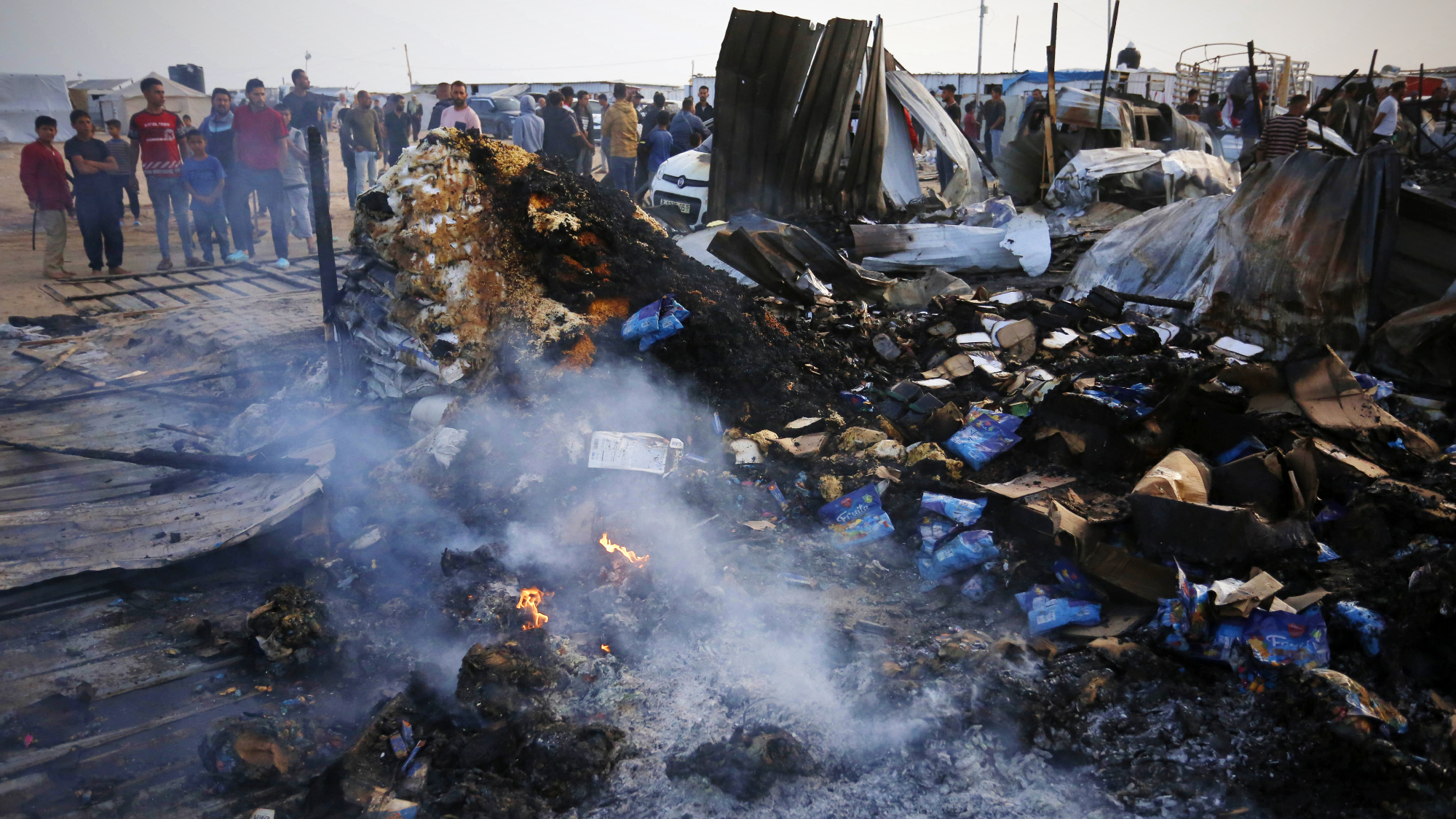Israel to continue Rafah attack after 'tragic mistake'
The strike on Sunday killed 45 displaced Palestinians and wounded hundreds


A free daily email with the biggest news stories of the day – and the best features from TheWeek.com
You are now subscribed
Your newsletter sign-up was successful
What happened
Israeli Prime Minister Benjamin Netanyahu on Monday acknowledged unspecified mistakes in a deadly Israeli airstrike in southern Gaza that drew international condemnation for killing at least 45 displaced Palestinians and wounding hundreds. Images and witness accounts from the ravaged Rafah encampment depicted women and children dismembered and disfigured by raging fire and shrapnel.
Who said what
"Despite our utmost efforts not to harm innocent civilians, last night there was a tragic mistake," Netanyahu told Israel's parliament. He said Israel will investigate. Military officials initially called Sunday's incident an attack on a Hamas compound using "precise munitions" and "precise intelligence."
A White House national security spokesperson said the "devastating images" from Rafah were "heartbreaking," and though Israel "has a right to go after" Hamas, it must protect civilians. French President Emmanuel Macron, echoing many European leaders, said he was "outraged" and "these operations must stop."
The tragedy comes at a "particularly delicate time for Israel," days after the International Court of Justice "appeared to order" a halt to the Rafah offensive and as "diplomats were aiming to restart" cease-fire negotiations, The New York Times said. The U.S. and other allies had warned Israel against invading the civilian refuge, and Sunday's deaths "appeared to be precisely" what they "had worried about."
What next?
Netanyahu showed no sign of dialing back Israel's Rafah offensive. "I don't intend to end the war before every goal has been achieved," he said.
The Week
Escape your echo chamber. Get the facts behind the news, plus analysis from multiple perspectives.

Sign up for The Week's Free Newsletters
From our morning news briefing to a weekly Good News Newsletter, get the best of The Week delivered directly to your inbox.
From our morning news briefing to a weekly Good News Newsletter, get the best of The Week delivered directly to your inbox.
A free daily email with the biggest news stories of the day – and the best features from TheWeek.com
Peter has worked as a news and culture writer and editor at The Week since the site's launch in 2008. He covers politics, world affairs, religion and cultural currents. His journalism career began as a copy editor at a financial newswire and has included editorial positions at The New York Times Magazine, Facts on File, and Oregon State University.
